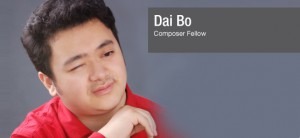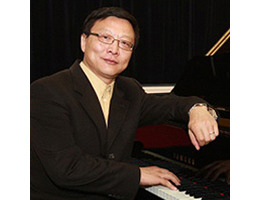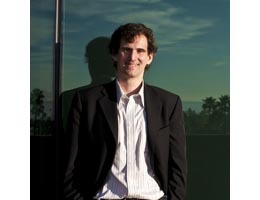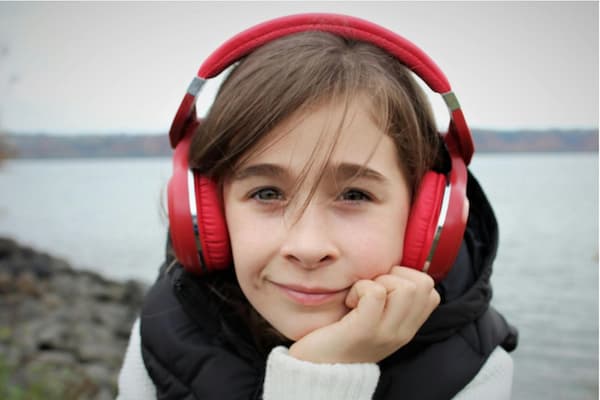 When none of the primary schools in the northeast Chinese town of Dalian would admit the then seven-year old Dai Bo, his parents bought him a piano. Little did they know that Dai Bo would grow up to be an award-winning Chinese composer and pianist; back then their only concern was that he had the chance to study something, and it wasn’t easy.
When none of the primary schools in the northeast Chinese town of Dalian would admit the then seven-year old Dai Bo, his parents bought him a piano. Little did they know that Dai Bo would grow up to be an award-winning Chinese composer and pianist; back then their only concern was that he had the chance to study something, and it wasn’t easy.
For Dai Bo is blind.
As an infant he was diagnosed with innate glaucoma, an eye disease where the optic nerve is damaged. Dai Bo underwent numerous surgeries, but in 1995, a bad operation left him completely blind in the right eye and only sensitive to light in the left eye. He was only seven-years old.
While other kids his age went to school, Dai Bo, undeterred by his disability, spent most of his time at the piano, but he didn’t just practice what his teacher gave him. He made up a lot of his own songs. A chance encounter with a local orchestra player led him onto the path to become a composer.
“Every week, I go to my teacher’s home to have my piano class and as a practice, I will go to his piano shop to prepare,” he said. “I always play some improvisation in [those few minutes].”
“One day, a player from the local orchestra [went] to the piano shop and he heard my playing. He asked me, “What is this?” and I answered, “It’s my piece.”
Realizing his talent, this local player quickly dragged Dai Bo’s parents to find a composer teacher, and from then onwards, Dai Bo’s music career was set. After completing primary education, he entered the middle school attachment of the Beijing Central Conservatory of Music to study composition.
Currently, Dai Bo is pursuing double master degrees in composition with Chinese contemporary composer Ye Xiaogang, whose composition Starry Night was premiered at the 2008 Summer Olympics in Beijing, and piano performance with the influential Xi You, whose piano career has seen her touring overseas extensively.
Dai Bo never for a single moment doubted his own ability as a composer and pianist, saying with a small chuckle, “anything is possible”. Yes, he can’t read music scores and has to learn the music by heart, and he writes his music on huge pieces of paper with only four lines, but other than that he doesn’t think he has it harder than anyone else.
Everyone needs to find his or her own solutions, he said. “We need to find the style of ourselves.”
Dai Bo, whose compositions have been so far premiered successfully to an international audience, views his selection as one of Intimacy of Creativity 2013’s composer fellows as a great opportunity to further enhance his career.
“It’s a very [good] activity for contemporary music,” he said. “It’s a good opportunity for the young composer to communicate with famous players. [My] cooperation with Mr. Cho-Liang Lin is very exciting for me.”
The Intimacy of Creativity 2013 is a workshop in April where for two weeks, selected composer fellows will work closely with distinguished performers to revise their compositions, before debuting the revised pieces in two World Premiere Concerts at the end of the event.
Dai Bo’s piece is Kong Gu You Lan, written in 2008 for the violin and the piano. Inspired by the orchid, which according to Dai Bo, represented the physical and spiritual beauty of women in China, the two instruments in the piece will imitate the sound of the gu qing, as well as evoke the sound of mountain folk songs and Peking opera.
Of Cho-Liang Lin, Dai Bo said that he was one of his favorite violinists, and grew up listening to his recordings of Sibelius and Nielson concertos.
“I hope that I can get many suggestions from Mr. Lin, and Mr. Bright Sheng and other performers,” said Dai Bo. “I like [having] many people criticize my piece because I can know… what they think of my music.”
He added, “As composers, we need many experiences.”
Dai Bo certainly seems to be keeping himself busy right up to the start of April. He hasn’t given up his career as a pianist, and just before IC 2013 begins, he will be giving a piano recital in Beijing, performing his own work, as well as works by Karol Szymanowski and Olivier Messiaen.
The Intimacy of Creativity 2013
You May Also Like
-
 In touch with Bright Sheng Bright Sheng, Chinese-American composer and the founder of Intimacy of Creativity is feeling good about the coming third season in many ways...
In touch with Bright Sheng Bright Sheng, Chinese-American composer and the founder of Intimacy of Creativity is feeling good about the coming third season in many ways... -
 In touch with Matthew Tommasini Matthew Tommasini recalled how emerging young pianist Haochen Zhang suggested to composer Bright Sheng at The Intimacy of Creativity – The Bright Sheng Partnership: Composers Meet Performers in Hong Kong last year that maybe he should cut his music piece short...
In touch with Matthew Tommasini Matthew Tommasini recalled how emerging young pianist Haochen Zhang suggested to composer Bright Sheng at The Intimacy of Creativity – The Bright Sheng Partnership: Composers Meet Performers in Hong Kong last year that maybe he should cut his music piece short...
More Guest Posts
-
 The Summer Soundtrack: How Classical Music Shapes Childhood Memory and Emotional Growth Discover how classical music help develop children's brains during vacation
The Summer Soundtrack: How Classical Music Shapes Childhood Memory and Emotional Growth Discover how classical music help develop children's brains during vacation -
 Ray Chen’s Player 1: A New Paradigm in Classical Performance Practice or Commercial Experiment? Explore his new album 'Player 1,' which juxtaposes video game music with Korngold's works
Ray Chen’s Player 1: A New Paradigm in Classical Performance Practice or Commercial Experiment? Explore his new album 'Player 1,' which juxtaposes video game music with Korngold's works -
 Narration is the Key to Connecting with Audiences Pianist Nikita Lukinov reveals how his narration brings 'Pictures at an Exhibition' to life
Narration is the Key to Connecting with Audiences Pianist Nikita Lukinov reveals how his narration brings 'Pictures at an Exhibition' to life -
 Can Classical Music Help You Study? Not all classical music is created equal for studying!
Can Classical Music Help You Study? Not all classical music is created equal for studying!






